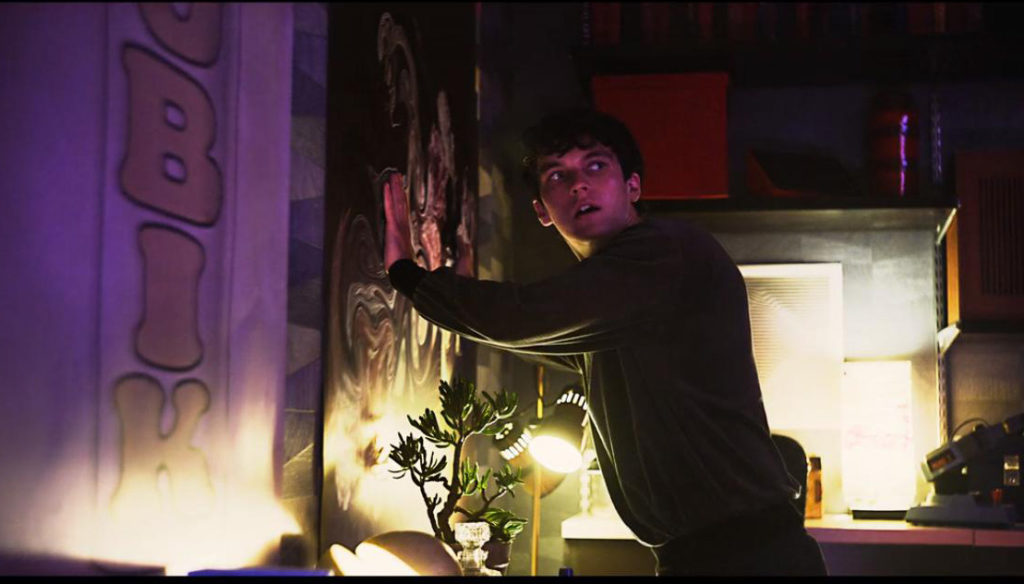It might be impossible to write just one review of Netflix’s interactive, standalone “Black Mirror” film “Bandersnatch,” but I’m going to try.
There had been whisperings for months that Netflix was planning on dropping a “choose your own adventure” episode for the fifth season of “Black Mirror.” Taking a page from Beyoncé, the streaming system dropped the standalone film with little warning in late December.
“Bandersnatch” is set in the 1980s and tells the story of teenage aspiring video game developer Stefan (Fionn Whitehead). In a not-so-sly wink to the audience, Stefan is attempting to create a “choose your own adventure” video game, based off the [fictional]novel, “Bandersnatch.”
Almost right away, the audience is given the ability to play God in Stefan’s life. The story opens on a big day for our protagonist — he is off to pitch his video game to a major gaming company. His father offers him breakfast before he’s off. It’s our first decision — which cereal should Stefan eat?
The decisions start off minor, and slowly get bigger. Our first big decision is whether or not Stefan should accept the company’s offer to complete his game in-house. Yes seems like the natural answer, right? Wrong. After selecting that answer, Colin (Will Poulter), an all-star developer at the company and Stefan’s idol, informs Stefan that was the wrong answer. Like hitting a dead end in the maze, Netflix will send you back a few minutes and make sure you select the correct answer — no.
This style continues on throughout the film. Some answers to the choices given push you forward, while others are deemed incorrect and make you choose again. No matter which path you take, we learn a few key things along the way: 1) the author of Stefan’s beloved “Bandersnatch” went mad and murdered his wife 2) Stefan has a very strained relationship with his father, due to his mother’s untimely death.

Whitehead gives a solid performance as Stefan. Whitehead almost intentionally seems to not connect to the character of Stefan. The vast majority of “Bandersnatch” endings see Stefan lost control and descend into madness. He’s a teenage boy who has not come to term’s with his mother’s death. The audience can’t fully understand Stefan because he is not even comfortable in his own skin.
The various storylines and endings in “Bandersnatch” can also be hard to connect with. This is “Black Mirror” — the audience has come to expect stories that are horrifying, yet completely plausible. Some of the multiple endings fit that description. Most endings involve Stefan murdering his father in a fit of rage, mirroring the descent into madness that his favorite author took. Others simply do not make sense. Government conspiracies and time traveling come out of nowhere.
Of all the possible endings, there is one that is so wonderfully wacky and meta within the most meta film of all time. While he codes his work, Stefan is convinced someone is watching him. A few paths in “Bandersnatch” give us the option to inform Stefan that Netflix is controlling his actions. That’s right — we get to explain to a kid in the ’80s that we are watching him on Netflix. From there, the path leads to a physical altercation with his therapist. One possible ending for this story has Stefan jumping out a window where he lands on the set of “Black Mirror.” Turns out, he is a very confused actor who no longer understands the difference between himself and his character.
Not only was this Netflix ending the most innovative that “Bandersnatch” offered us, but it was the most true to “Black Mirror” form. The show is a satire on technology’s effect on the world, with most of it being negative. This ending shows a man so incredibly immersed in the technological world of Netflix that he literally loses himself. While other endings are engaging, most of them simply just show a horrifying possibility of what could happen when a mentally unstable teenager reaches his breaking point.
The idea behind this interactive type of content is truly brilliant. So often do audiences stare at other screens while they play Netflix in the background. Giving viewers the power to make decisions will keep them engaged and likely bring them back for repeat viewings, so they may see every possible path. However, the story and the ultimate “Black Mirror vibes” of this particular film, were just so-so.
-by Brynne Ramella